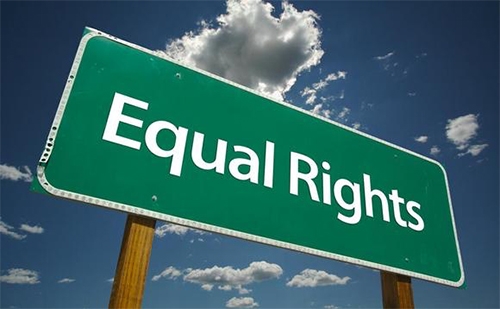The philosophies of Alfred (Tup) Holmes and Georgia governor Marvin Griffin collided in the mid-1950’s when Holmes and his family challenged segregation in Atlanta: not in the schools or work places, but on the golf course.
In 1951, Tup, his brother Oliver and their father, Dr. Hamilton M. Holmes, were turned away from the Bobby Jones course, one of seven public golf courses in Atlanta at the time, because they were black. Then, they launched what their lawyer, Roscoe E. Thomas, recently recalled was “the first desegregation suit in Atlanta.”
The suit began in United States District Court in 1953 and reached the Supreme Court two years later. Tuesday marks the 40th anniversary of the Court’s decision in Holmes v. Atlanta, the case that desegregated public golf. (Discrimination still exists at many private country clubs, which continue to practice exclusionary membership policies based on race and religion.)
When most people think of desegregation, they think of Brown v. Board of Education. Brown was rendered a full year earlier, but the case filed by the Holmeses, all now deceased, had a more immediate effect. “The first scene of court-ordered desegregation in Georgia was a golf course rather than a school house,” wrote the Atlanta historians Norman Shavin and Bruce Galpin in “Atlanta: Triumph of a People.”
Holmes v. Atlanta began in the aftermath of the incident at the Jones course when Tup Holmes and a community committee decided to bring suit against the city. They won a hollow victory in 1954 when District Court Judge Boyd Sloan ruled that blacks had a Constitutional right to play golf, but only in accordance with the city’s “separate but equal” doctrine. He ordered the city to devise a system to accommodate blacks while “preserving segregation.”
The city offered to let blacks use the public courses Mondays and Tuesdays which was agreeable to some. “They said this was enough, we don’t need to go further because it could jeopardize our jobs,” Gary Holmes, one of Tup Holmes’s sons, recalled last week.
But Tup Holmes “didn’t have that fear,” Gary Holmes said of his father, who died in 1967. “He was a mover and shaker, bold enough to do that kind of stuff.” An amateur golf champion and a black union steward at his job at Lockheed Aircraft, Holmes was determined to fight on to win full use of city courses.
The case moved to an Appeals Court in New Orleans, where Thurgood Marshall and the N.A.A.C.P. intervened. But when the Court ruled the original decision had given the plaintiffs “all the relief they asked for,” the Holmeses were forced to take their fight further, all the way to the Supreme Court.
The Court accepted the case in the 1955 fall term, a year after Brown, when it was “knocking down all kinds of things,” according to Jack Greenberg, a Columbia University Law School professor who was the long-time director of the N.A.A.C.P’s Legal Defense and Educational Fund. Greenberg worked with Thurgood Marshall on the Holmes case. “The Court was saying, ‘Haven’t you got the message?’ ” In fact, the Court quickly overturned the previous rulings in Holmes, sending it back to District Court for a decree in favor of the plaintiffs.
The decision was applauded in an editorial in The New York Times of Nov. 9, 1955: “The court’s perfectly logical position is that desegregation means desegregation, not segregation on an equal basis.” But the Atlanta Constitution wrote, “A majority of Southerners will be shocked and angered by this decision.”
Griffin and other segregationist politicians condemned the decision and vowed to fight it. The Mayor urged the city to sell its course to private individuals who presumably could have kept them segregated. The town of Leland, Miss., sold its course to the Lions Club for $1 to avoid the challenge of integration.
But when Judge Sloan got the case again, he ordered the city to desegregate its courses “immediately.” The Holmeses took their game public the very next day.
Dec. 24, 1955, was “a happy day in town for black folks,” said Gary Holmes, who was 12 at the time. But the joy in the community was tempered by a fear of white retaliation. There were threatening calls to the Holmes household, prompting “talk in the community of a bloodbath or race war,” Holmes remembered. Some blacks considered stuffing guns in their golf bags, he said, before heading to the course.
Read more of this story by By Ken Liebeskind at NewYorkTimes.com



